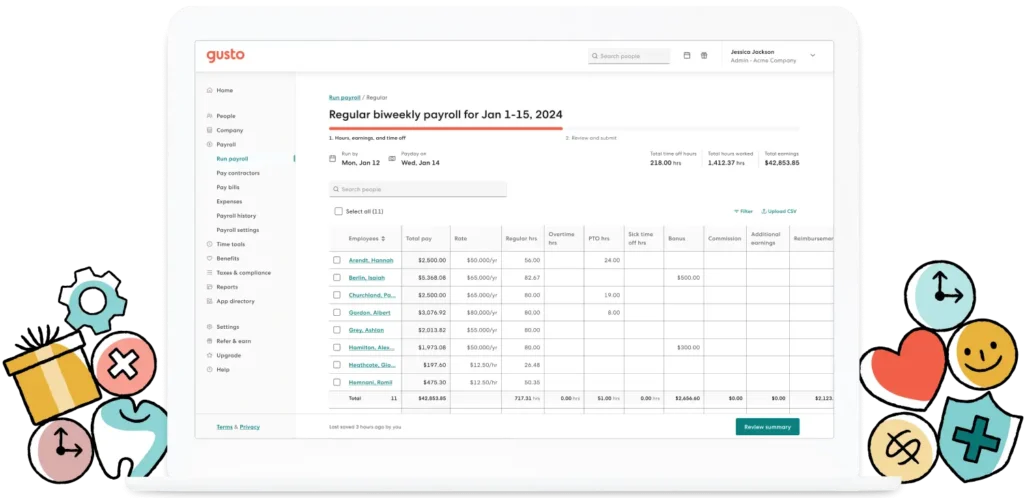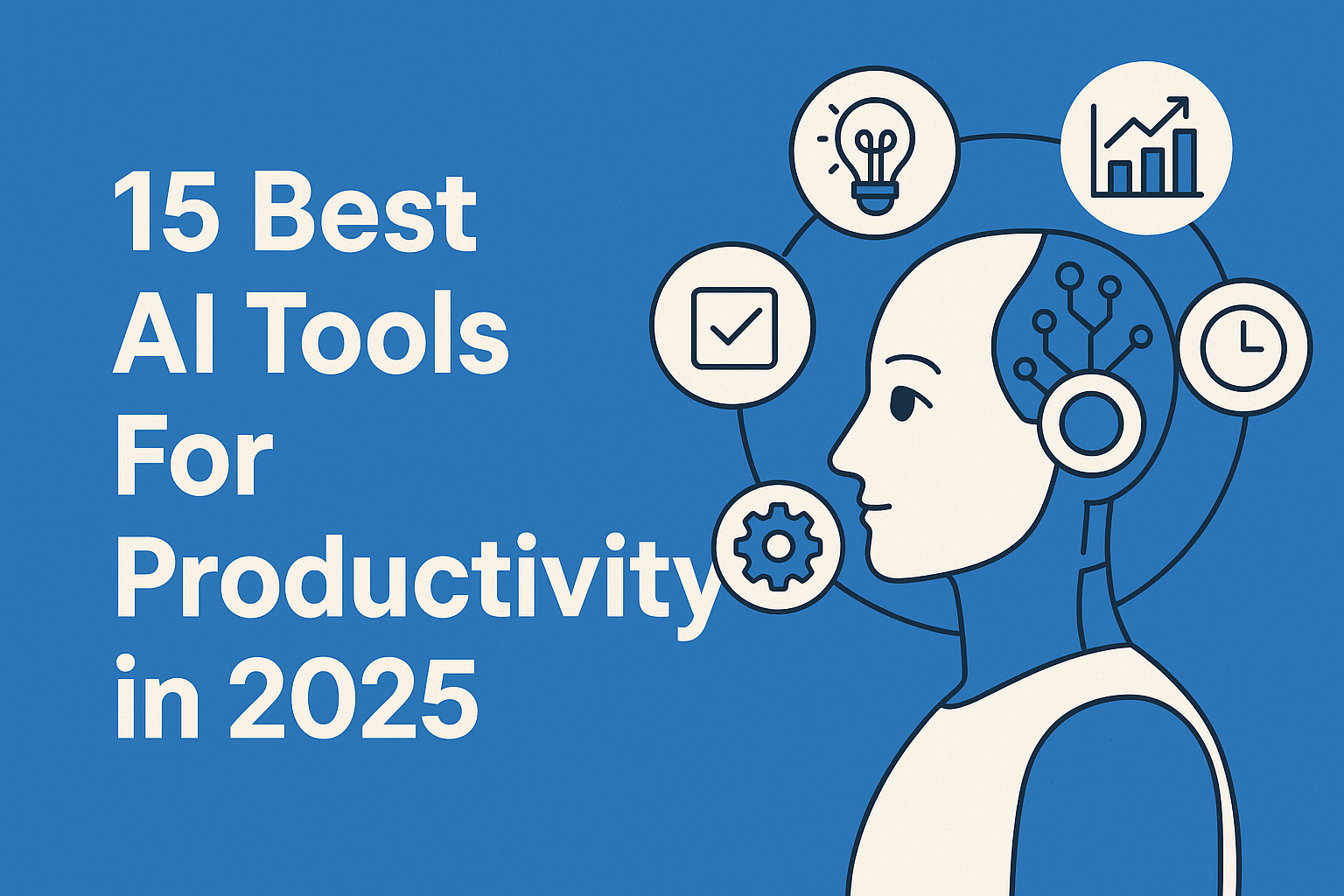For many small business owners, managing human resources isn’t just a department — it’s one more hat to wear. From tracking time-off requests to ensuring accurate payroll, HR responsibilities can quickly drain your time and energy. But here’s the good news: You don’t need a full-fledged HR team to handle these tasks efficiently.
Thanks to advancements in cloud-based technology, HR software for small companies is now smarter, more affordable, and easier to use than ever before. In this article, we’ll explore what HR software can do, why it’s essential for small businesses, and which tools are leading the market in 2025.
What is HR Software and Why Does Your Small Business Need It?
HR software refers to digital platforms that help businesses automate and manage tasks related to employee management. These include:
- Hiring and onboarding
- Payroll and tax filing
- Employee records and documentation
- Time and attendance tracking
- Benefits administration
- Compliance reporting
- Performance reviews
If you’re running a small company, handling these tasks manually often leads to errors, delays, and burnout. HR software enables small teams to work like large enterprises—without the extra overhead.
Why it matters:
- Saves time and reduces manual work
- Keeps employee records organized
- Helps with labor law compliance
- Provides a smoother experience for employees
Must-Have Features in HR Software for Small Companies
Not all HR software is created equal—especially when your team is under 50 people. Look for tools that offer:
- User-friendly dashboards
- Automated payroll processing
- Time tracking & scheduling
- Employee self-service portals
- Document management
- Scalable pricing (per user or flat rate)
- Integration with tools you already use (like QuickBooks, Slack, or G Suite)
Best HR Software for Small Companies in 2025
After evaluating features, ease of use, support, scalability, and affordability, here are five standout options for small businesses this year:
1. Gusto — Best All-in-One HR Platform for Small Teams

Overview:
Gusto continues to be one of the most recommended HR platforms for small companies, especially those looking for a payroll-first solution. It combines payroll, employee onboarding, and benefits into one clean interface.
Key Features:
- Full-service payroll in all 50 states
- Automatic tax filing
- Benefits management (health, dental, 401k)
- Employee onboarding tools
- Time tracking and PTO management
- Built-in compliance alerts
Pros:
- Easy to set up and manage
- Affordable base plans
- Excellent customer support
Pricing:
Starts at $40/month + $6 per user
Best for: Small companies that want a complete HR + payroll system that scales.
2. BambooHR — Best for Growing Companies with 10–50 Employees
Overview:
BambooHR shines when it comes to people data, performance management, and employee self-service. It’s ideal for companies that are starting to formalize their HR processes.
Key Features:
- Centralized employee records
- PTO tracking and approvals
- Onboarding and offboarding workflows
- eSignature and document storage
- Performance evaluations and goal tracking
Pros:
- Clean interface
- Scalable modules
- Great for HR teams or solo HR leads
Pricing:
Custom pricing based on team size
Best for: Small businesses with growth in mind that want flexibility and reporting.
3. Zoho People — Best for Budget-Conscious Businesses
Overview:
Zoho People is part of the broader Zoho Suite but functions well on its own. It’s lightweight, cost-effective, and ideal for teams that want simple HR functionality without a steep learning curve.
Key Features:
- Attendance tracking
- Shift scheduling
- Leave management
- Workflow automation
- Integration with G Suite and Zoho Books
Pros:
- Free plan for up to 5 users
- Modular pricing
- Mobile-friendly
Pricing:
Free for 5 users; paid plans start at $1/user/month
Best for: Startups and micro-businesses with tight budgets.
4. Rippling — Best for Remote and Tech-Savvy Teams
Overview:
Rippling goes beyond basic HR—it also offers IT and finance tools in one integrated platform. It’s ideal for businesses managing remote workers or contractors.
Key Features:
- Payroll, benefits, and compliance
- IT device management (laptops, software access)
- Automated onboarding (even for remote hires)
- App provisioning and deprovisioning
Pros:
- Ultra-modern UI
- Great for distributed teams
- Grows with your company
Pricing:
Starts at $8/user/month (modular pricing)
Best for: Tech-forward businesses that need more than just HR.
5. Deel — Best for Global Teams and Freelancers
Overview:
If your small company works with international contractors or employees, Deel simplifies global compliance and payroll. It’s one of the top tools for remote-first companies.
Key Features:
- Payroll in 150+ countries
- Local compliance handled automatically
- Contracts, onboarding, and tax forms
- Payment processing in multiple currencies
Pros:
- Ideal for remote teams
- Excellent legal and tax compliance tools
Pricing:
Starts around $49/month per contractor
Best for: Small companies with international hires or plans to go global.
Comparison Table: HR Software for Small Companies
| Tool | Best For | Starting Price | Standout Features |
|---|---|---|---|
| Gusto | All-in-one HR + Payroll | $40/mo + $6/user | Payroll, benefits, time tracking, onboarding |
| BambooHR | Growing teams | Custom Quote | People analytics, performance tracking |
| Zoho People | Small budgets | Free/$1/user | Leave management, attendance, automation |
| Rippling | Remote teams | $8/user/mo | HR, IT, finance automation, onboarding |
| Deel | Global hiring | $49/mo | International payroll & compliance |
How to Choose the Right HR Software for Your Company
Choosing HR software isn’t just about cost — it’s about finding the right fit for how you work. Here’s a quick decision guide:
- Want simplicity and compliance out of the box? Go with Gusto.
- Planning to grow into 50+ employees? Choose BambooHR.
- Need something lean and free to start? Try Zoho People.
- Running a remote or tech-heavy business? Check out Rippling.
- Hiring across borders or freelancers? Use Deel.
Case Study: Small Business Wins with HR Tech
After switching to BambooHR, a 12-person marketing agency in Austin cut onboarding time by 60% and reduced payroll errors to zero. The founder said, “Before, HR tasks were scattered across spreadsheets and email threads. Now, everything is in one place—and it actually saves us money.”
The Future of Small Business HR is Digital
HR software for small companies is no longer a luxury—it’s a necessity. With so many affordable, powerful, and easy-to-use tools available in 2025, there’s no reason to stay stuck in spreadsheets.
Whether you’re onboarding your first employee or managing a team of 30, the right HR software helps you stay compliant, efficient, and competitive.
Frequently Asked Questions (FAQ)
Is HR software worth it for companies under 10 employees?
Yes. Even small teams benefit from automated payroll, record-keeping, and compliance tools.
What’s the most affordable HR tool for startups?
Zoho People is a great option with a free tier and affordable upgrades.
Do I need separate software for payroll?
Not always. Tools like Gusto and Rippling combine HR and payroll in one platform.
Can HR software help with legal compliance?
Yes. Many tools now include automated tax filing, labor law compliance, and documentation features.




